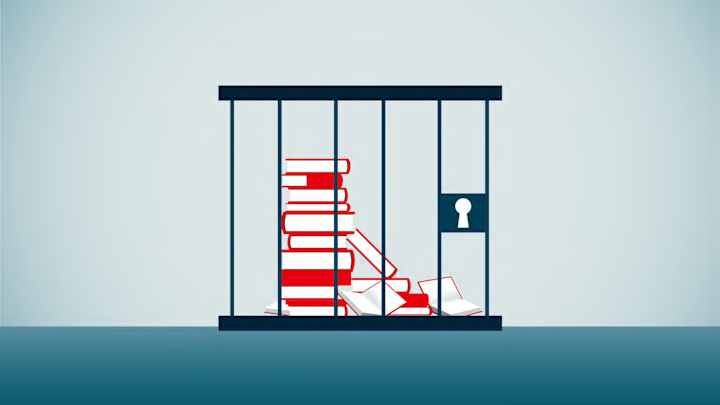Every year since 1982, the American Library Association (ALA) has hosted Banned Books Week to combat censorship and illustrate “the value of free and open access to information.” The theme of 2024’s Banned Books Week—which runs from September 22 to September 28—is “Freed Between the Lines,” a nod to the freedom we find in books.
The message is open-ended enough to allow for personal interpretation. It could be the freedom to embrace and express your own identity after seeing yourself represented in a story—or the freedom from closed-mindedness that you gain through reading about experiences unlike your own. Whatever the case, it’s a freedom threatened when books are banned.
To help raise awareness around the issue, the ALA’s Office of Intellectual Freedom tracks and publishes data on challenges to library content across the country. In 2023, there were 1247 demands for censorship, a 65 percent increase from the previous year and the highest number in some two decades of data collection. Of the 4240 book titles singled out—up from 2571 in 2022—nearly half “represent[ed] the voices and lived experiences of LGBTQIA+ and BIPOC individuals,” per the ALA.
Seven of the top 10 most challenged books of 2023 were targeted for featuring LGBTQIA+ content (among other reasons), including the first-place finisher: Maia Kobabe’s memoir Gender Queer, which logged 106 challenges. All 10 books were “claimed to be sexually explicit,” careful wording that acknowledges sexual explicitness is often a matter of opinion (and suggests that the ALA doesn’t necessarily share these opinions).
The list runs the gamut from beloved novels like Toni Morrison’s The Bluest Eye to educational nonfiction like Let’s Talk About It: The Teen’s Guide to Sex, Relationships, and Being a Human by Erika Moen and Matthew Nolan. You can see what else made the list (and why) below, and learn more about Banned Books Week here.

